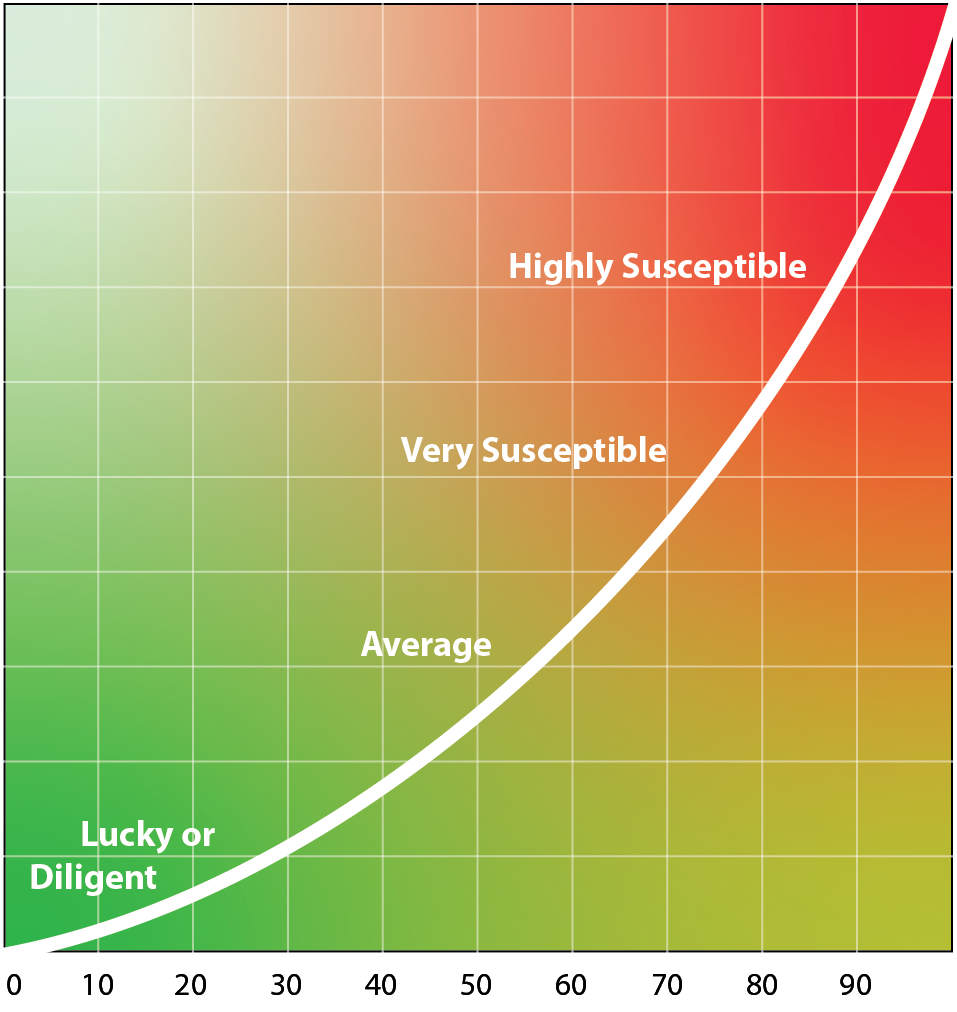Laxatives, Fiber, Bacteria and Your Health

Do you ever use laxatives?
Laxative sales at retail total an astonishing $1.3 billion dollars each year in the USA. And constipation is the reason for over 2.5 million doctor visits annually.
Did you know that straining while pooping can cause varicose veins, hiatal hernias, diverticulitis, inflamed hemorrhoids, and unnaturally raises your blood pressure? Strokes and aneurysms can result from excessive straining.
Rather than taking a pill, the best long-term approach to solving constipation is increasing fluids, fiber and your physical movement. Fiber-based laxatives (plus a large glass of water) are generally not dangerous, but your gut bacteria prefer whole foods to purified and processed fibers. A study comparing whole grains to purified fiber showed significantly greater growth in good bacteria from whole grains vs purified fiber.
The Benefits Include…
Increasing your dietary fiber intake via whole foods reduces your risk of type 2 diabetes, heart disease, some cancers, weight gain, and diverticular disease, while also reducing constipation and strengthening your immune system.
So it’s a great idea to eat more fiber-rich foods, such as whole grains, vegetables, fruits, and legumes (such as beans and peas).
Research shows that as fiber intake goes up, your risk of weight gain, metabolic syndrome, heart disease, high cholesterol, and inflammatory conditions appears to go down. Fiber ushers cholesterol and bile out of the body, and provides the food that your good bacteria need to thrive.
Fiber and good bacteria
But fiber is not just a mechanical means of keeping things moving. It’s also the fuel for your good bacteria. We are symbiotic with billions of bacteria. In fact we have more bacteria in our bodies than we have human cells. And many of them are in our intestines and in our stools.
What is Butyrate?
The friendly bacteria in your intestine (probiotics) produce butyrate, which is a short-chain fatty acid that is the ideal food for the cells that line your intestines. This butyrate production helps keep your intestinal lining healthy. It also reduces inflammation, and is believed to protect against colon cancer. So you need your gut bacteria, and they need you to eat well so they can flourish.
Banish Dysbiosis
The condition that results from a lack of sufficient good fiber in the diet is called dysbiosis, which is an imbalanced condition where bad bacteria can take over. We all have some molds and bad bacteria in our guts, but the good bacteria normally out-compete them and keep them from taking over. But allowing the bad guys to thrive increases our susceptibility to inflammatory diseases, colon cancer, metabolic syndrome, type 2 diabetes, and cardiovascular disease.
Bugs in Space?
We know that by the time astronauts return from lengthy periods in space, they have lost most of their good bacteria because they had no access to fresh, higher-fiber foods. A documented example is losing nearly 100% of their Lactobacillus plantarum, one of the good bacteria.
Rapid results
Eating grains, legumes, vegetables and fruits can rapidly increase the health, variety and quantity of good bacteria in the intestines. And stopping these foods causes an equally rapid disappearance of the good guys. It can happen — for good or bad — in as quickly as a few days. Eating junk food, fast food, refined sugars and alcohol increases the bad guys just as rapidly.
Diversity is Good
Studies have also shown a relationship between weight, inflammation, and insulin resistance and gut bacterial diversity. Thinner, objectively healthy people without inflammatory conditions who have low C-reactive protein have a more diverse intestinal flora, and heavier people with more medical concerns have a less-diverse intestinal flora.
How to Fiber Up
If you’re interested in losing weight while nourishing yourself from the inside out, the meal plans provided by iDiet are designed with lots of the type of fiber that benefit your good bacteria. We use fiber to increase fullness and prevent a too-rapid return of hunger, which also has the happy side-effect of keeping your good bacteria healthy. Our food plans balance protein, fiber, slow carbs, and healthy fats to provide for optimal fullness during weight loss, with no hunger. Based on Dr. Roberts’ work on the 5 basic food instincts that drive our hunger and cravings, we help you make choices that shift you towards new healthy habits and away from old unhelpful ones.
Dr. Susan Roberts is the author of the iDiet — as well as over 250 research papers, and one of America’s top nutrition researchers. She designed this program to be healthy and responsible as well as effective. This is no fad program. As the leader of a USDA-sponsored nutrition lab at Tufts University, and a USDA and National Academy of Sciences advisor, she relies on only the best peer-reviewed science. Why not join us and see how easy, convenient and delicious a healthy plan can be?
Register Today
Choose the program that’s right for you.
Selected References
Vermorken AJ, Cui Y, Kleerebezem R, Andrès E. Bowel movement frequency and cardiovascular mortality, a matter of fibers and oxidative stress?. Atherosclerosis. 2016;253:278-280.
Burkitt DP, Meisner P. How to manage constipation with high-fiber diet. Geriatrics. 1979;34(2):33-5, 38-40.
Burkitt D. Fiber as protective against gastrointestinal diseases. Am J Gastroenterol. 1984;79(4):249-52.
De vries J, Birkett A, Hulshof T, Verbeke K, Gibes K. Effects of Cereal, Fruit and Vegetable Fibers on Human Fecal Weight and Transit Time: A Comprehensive Review of Intervention Trials. Nutrients. 2016;8(3):130.
Yang J, Wang HP, Zhou L, Xu CF. Effect of dietary fiber on constipation: a meta analysis. World J Gastroenterol. 2012;18(48):7378-83.
Nilsson AC, Östman EM, Knudsen KE, Holst JJ, Björck IM. A cereal-based evening meal rich in indigestible carbohydrates increases plasma butyrate the next morning. J Nutr. 2010;140(11):1932-6.
Meijer K, De vos P, Priebe MG. Butyrate and other short-chain fatty acids as modulators of immunity: what relevance for health?. Curr Opin Clin Nutr Metab Care. 2010;13(6):715-21.
Grooms KN, Ommerborn MJ, Pham DQ, Djoussé L, Clark CR. Dietary fiber intake and cardiometabolic risks among US adults, NHANES 1999-2010. Am J Med. 2013;126(12):1059-67.e1-4.
Liu L, Wang S, Liu J. Fiber consumption and all-cause, cardiovascular, and cancer mortalities: a systematic review and meta-analysis of cohort studies. Mol Nutr Food Res. 2015;59(1):139-46.
A M Stephen, J H Cummings. The microbial contribution to human faecal mass. J Med Microbiol. 1980 Feb;13(1):45-56.
E D Sonnenburg, J L Sonnenburg. Starving our microbial self: the deleterious consequences of a diet deficient in microbiota-accessible carbohydrates. Cell Metab. 2014 Nov 4;20(5):779-86.
S Possemiers, S Bolca, W Verstraete, A Heyerick. The intestinal microbiome: a separate organ inside the body with the metabolic potential to influence the bioactivity of botanicals. Fitoterapia. 2011 Jan;82(1):53-66.
P Louis, G L Hold, H J Flint. The gut microbiota, bacterial metabolites and colorectal cancer. Nat Rev Microbiol. 2014 Oct;12(10):661-72.
N J Kellow, M T Coughlan, C M Reid. Metabolic benefits of dietary prebiotics in human subjects: a systematic review of randomised controlled trials. Br J Nutr. 2014 Apr 14;111(7):1147-61.
V K Ilyin. Microbiological status of cosmonauts during orbital spaceflights on Salyut and Mir orbital stations. Acta Astronaut. 2005 May-Jun;56(9-12):839-50.
Karl JP, Saltzman E. The role of whole grains in body weight regulation. Adv Nutr. 2012 Sep 1;3(5):697-707.
Walter J, Martínez I, Rose DJ. Holobiont nutrition: considering the role of the gastrointestinal microbiota in the health benefits of whole grains. Gut Microbes. 2013 Jul-Aug;4(4):340-6.
Martínez I, Lattimer JM, Hubach KL, Case JA, Yang J, Weber CG, Louk JA, Rose DJ, Kyureghian G, Peterson DA, Haub MD, Walter J. Gut microbiome composition is linked to whole grain-induced immunological improvements. ISME J. 2013 Feb;7(2):269-80.
Albenberg LG, Wu GD. Diet and the intestinal microbiome: associations, functions, and implications for health and disease. Gastroenterology. 2014 May;146(6):1564-72.
Richness of human gut microbiome correlates with metabolic markers. Nature. 2013 Aug 29;500(7464):541-6.

 Yes! I want to receive a 38-page cookbook, and be informed of upcoming classes. No obligation, instant download.
Yes! I want to receive a 38-page cookbook, and be informed of upcoming classes. No obligation, instant download. 